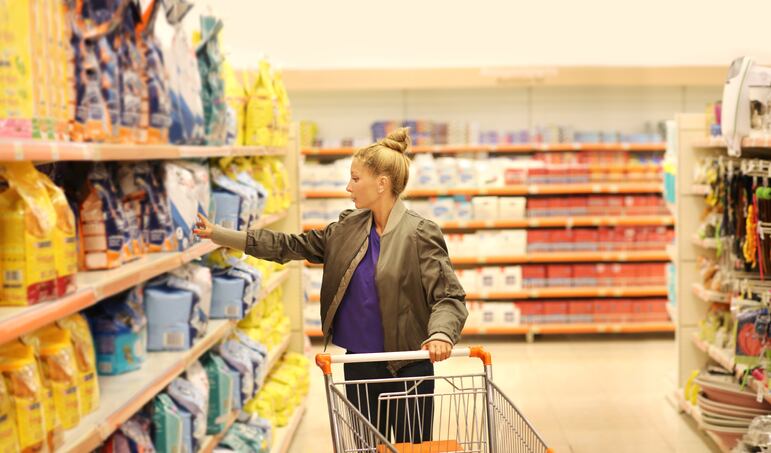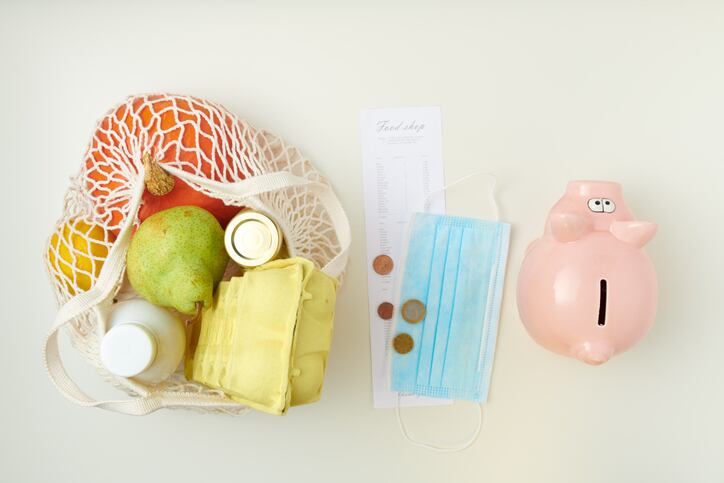Despite multiple rounds of stimulus checks and business loans to help keep employment afloat, the loss of jobs – especially in food service and hospitality – has created an economic uncertainty that could linger long after the threat of COVID-19 has passed, Holly McHugh, a marketing associate with Imbibe The Drink Tank warned during a recent webinar about trends in 2021.
“While there appears to be an end in sight with a vaccine, we really don’t know how long until the economy improves and consumers feel safe spending. So, we predict that consumers will be cost-conscious in 2021, which will drive demand for products that provide more for less money – whether that be more product for less money or more premium products for less money,” McHugh said.
At the same time, she added, many are stocking up on groceries again in the face of rising infection rates and renewed lockdown orders – underscoring the need to make budgets stretch.
Brands and products best positioned to weather the confluence of these trends are those offering ‘bulk’ savings through multi-serve products or multi-packs, McHugh said.
“Offering multi-serve products benefits brands that want to get on shelf right now because not too many retailers are adding to their single-serve refrigerated sections right now as consumers aren’t buying for convenience as often,” McHugh said. “But they are still looking for value.”
They also are looking to reduce their environmental footprint by buying products with less packaging – chalking up another point for multi-serve packs.
But for all the benefits of multi-serve packs, there are several downsides that could tip the scales in favor of large packs of single-serve items, McHugh said. For example, the number of shoppers who are quarantining alone or with only one other person – making it difficult to finish some multi-serving packs before the product spoils. Even if they can finish the product, they might not want to consume large amount of the same product day in and day out – seeking instead variety that can come from combination packs.
While combination packs often are more expensive for brands to produce, they can drive trial that leads to additional sales later and potential consumer loyalty because they allow shoppers to try multiple products at a slightly discounted price point, rather than commit to a large quantity of something they might not like.
Private label resurgence on the horizon
Cost-conscious consumer who are less willing to sacrifice quality or who cannot afford the money or space to buy in bulk, also likely will save by opting for private label products – especially of premium offerings, McHugh predicts.
Pointing to data from IRI, McHugh noted that private label brand sales are up 29% since the start of the pandemic, and, according to McKinsey, more than 13% from before the pandemic.
The main reason for the switch to private label was availability and price, according to Nielsen, which also found two-thirds of consumers rank the quality of store brands as good as name brands and, in a third of cases, even better than traditional brands, according to McHugh.
Given the broad consumer acceptance of private label quality, McHugh sees significant potential for private label disruption in alternative dairy, including plant-based milk, cheese and yogurt, as well as in functional beverages and even alcohol.
For example, Whole Foods’ 365 brand offers an Immune Refresher beverage with turmeric and ginger, McHugh noted, adding she also expects to see in the coming months additional innovation in energy, sports nutrition, mood-boosting drinks and teas for relaxation.
Finally, McHugh said, she expects both branded and private label options to embrace more expansive flavor exploration as a way to make products appear more premium. For example, Trader Joe’s rhubarb & strawberry soda appears more sophisticated than classic soda flavors and it also carries with it a health halo associated with the flavors that can also make the beverage appear more premium


